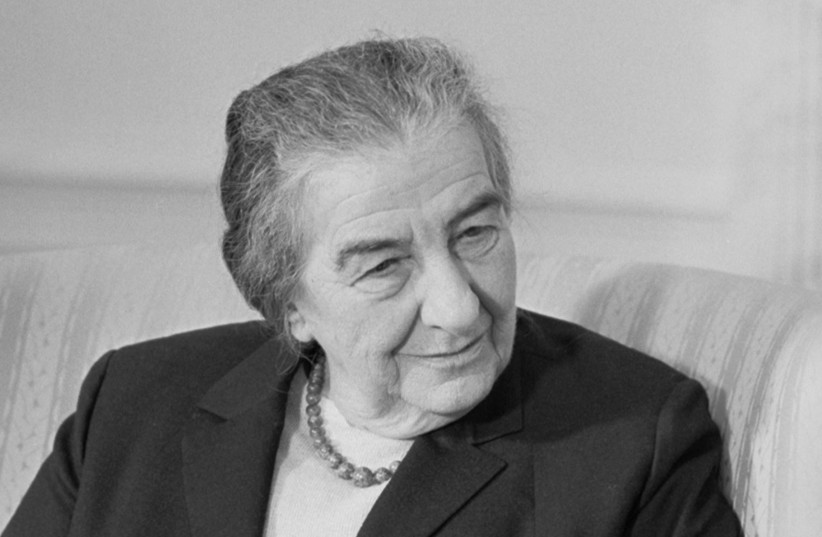In film and entertainment, portraying historical figures has always been a subject of intense scrutiny and debate. A recent controversy has grown around actor Bradley Cooper and his upcoming role in a Netflix biopic centered on the life of the legendary Jewish conductor and composer Leonard Bernstein. Cooper used a prosthetic nose in the film to portray Bernstein, an action widely criticized by the broader Jewish community and public figures on social media.
Bernstein’s children, however, came to Cooper’s defense, explaining that the Hollywood actor “included the three of us in every step of his amazing journey as he made his film about our father.” The Bernstein siblings then explained, “It happens to be true that Leonard Bernstein had a nice, big nose. Bradley chose to use makeup to amplify his resemblance, and we were perfectly fine with it.”
No matter which side of the debate you fall on concerning Cooper’s actions, a legitimate discussion has been sparked on how to represent a person’s identity on screen appropriately and respectfully.
There are multiple issues to consider in this instance:
- Hollywood’s tendency to award and prioritize non-Jewish actors for roles of historically iconic Jewish characters, and
- Hollywood’s reinforcement of inaccurate stereotypes about Jews that stem from antisemitic tropes.
Of course, religious background should never be a prerequisite for playing a character. Still, we cannot ignore the reality that Jewish actors and actresses seem to never score roles as important Jewish characters. Two prime examples were when Katherine Hahn was set to play Joan Rivers in a project called The Comeback Girl, or even now, Helen Mirren’s portrayal of Golda Meir in the upcoming biopic Golda.

Failing to represent Jews in Hollywood
I WANT to be clear that these actors are brilliant and not at fault for this; in many cases, non-Jews have done an excellent job at playing Jewish characters. Yet, Hollywood’s trend of failing to represent Jews in characters whose entire essence is their Judaism is problematic. Bernstein was one of those characters who was not only known for his talent but also for his Jewish heritage, which played a significant role in shaping his career.
The Tablet writes that Bernstein explicitly included Jewish themes in his compositions, including Jeremiah, a symphony written by Bernstein in 1942, which was a response to early reports of Nazi mass murders of Jews, and Halil, which represented the lost lives in the Israeli Yom Kippur War of 1973.
A Jew playing the role of Bernstein could have prevented the “Jew-nose” or “Jew-face” fiasco that Bradley Cooper is now dealing with. The term “Jew-face” characterizes stereotypical or inauthentic portrayals of Jewish people that gained prominence in early Vaudeville (initially by mostly non-Jews).
In film and theater, we often see it when actors adopt a Yiddish accent and utilize facial prosthetics or fake beards to portray stereotypical Jewish characteristics. In the same way “blackface” is an offensive and racist way to display a caricature of a black person by a non-black person, Jew face should not be categorized differently.
I would be wrong to assume that Bradley Cooper had bad intentions for this role; Bernstein’s children proved that it was not the case. However, their statement does not take away from the issue, nor is it any less offensive to the Jewish community, which has endured centuries of false depictions of “hooked-nose” people.
Not everyone knows that the hateful depiction of the Jewish hooked nose started with Christian antisemitism. Thousands of years after Jesus’s crucifixion, it became common for Christian artists to represent his death by depicting Jews, whom they blamed for his death, as monstrous sub-humans with demonic features, and they included oversized noses.
The Nazis, however, popularized the Jewish nose propaganda and even developed phony “scientific studies” to assess Jewish features, particularly the nose. A simple Google search of Nazi propaganda can showcase how deeply this antisemitic trope seeped into society and reinforced the face notion of a “Jewish nose.”
THE REALITY is that Jews, a diverse group of people of different colors and ethnicities, don’t have a singular nose. Therefore, a “Jewish nose” does not exist. A study conducted by anthropologist Maurice Fishbergin in 1911 assessed 4,000 Jewish noses and proved they were no different from those of the general population. Newer studies on nasal characteristics reveal that the nose shape is primarily influenced by geographic origins rather than religion.
All of this matters when we discuss Bradley Cooper’s portrayal of Leonard Bernstein with a fake nose. Bernstein may have had a “big nose,” but a non-Jewish person using a prosthetic elicits the same offense as a white person using blackface. It is inappropriate and has become an ingrained stereotype historically used to depict Jewish individuals.
Representation in Hollywood and film is crucial today, yet Jews are constantly getting sidelined. Mainstream media and culture have perpetuated so many antisemitic tropes (e.g. “Jews are rich” or “Jews control Hollywood”) that Jews receive no sympathy when it comes to our voices and fights for representation.
No other group would have to silently watch as members from outside their community get to portray inaccurate stereotypes, but for some reason, Jewish people have to take it. However, Broadway shows like Parade and Leopoldstadt are two beautiful examples of the magic that can happen when Jewish actors like Ben Platt, Micaela Diamond, and Brandon Uranowitz are given the opportunity to portray such iconic Jewish figures.
These productions showcase authenticity and the talent that comes from the Jewish community’s remarkable talent in playing roles that we know about better than anyone.
The writer is a social media activist with over 10 years of experience working for Israeli and Jewish causes and cause-based NGOs. She is co-founder and COO of Social Lite Creative, a digital marketing firm specializing in geopolitics.
